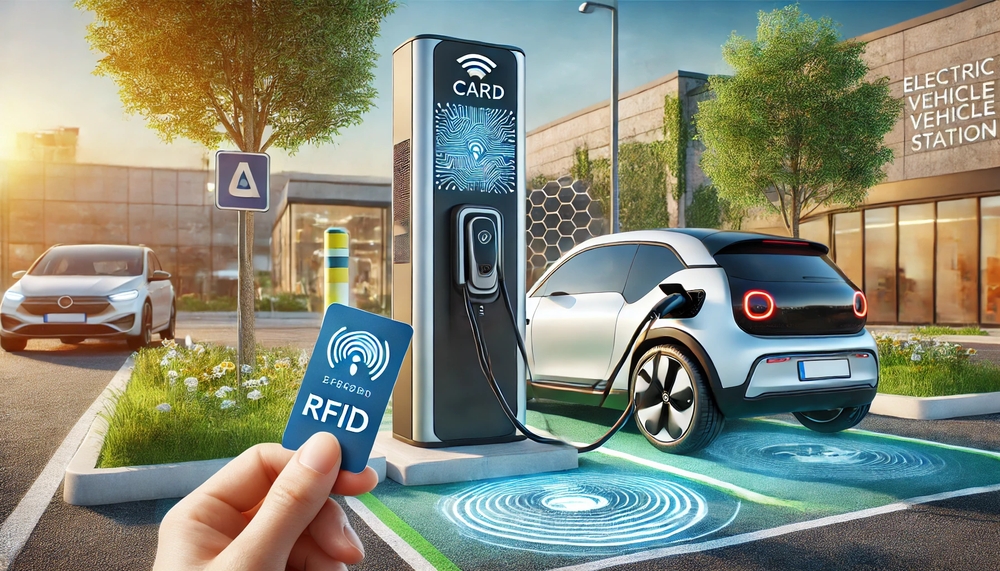Published
- 4 min read
Your guide to choosing the best RFID card for EV charging

As electric vehicles (EVs) continue to grow in popularity, one essential tool for EV owners is the best RFID card for EV charging. Whether you’re charging at home, on the go, or planning a long road trip, having the right RFID card can make your charging experience smoother, faster, and more reliable. In this article, we’ll explore key factors to consider when choosing the best RFID card for EV charging, covering topics like network coverage, billing transparency, and additional features that could make a world of difference for your charging sessions.
Why is an RFID card for EV charging necessary?
Even in 2024, an RFID card remains essential for EV charging, particularly at public charging stations. While credit card payment options are expanding, the majority of charging stations still rely on RFID technology. Here’s why:
- Wider access: Many charging points, especially in non-urban areas, don’t yet support credit card payments. An RFID card provides access to a broader network of stations.
- Convenience: Managing your charging sessions is easier with an RFID card, which often integrates with mobile apps to track usage and costs.
- Flexibility: During peak times, rapid charging stations equipped with credit card readers can get crowded. With an RFID card, you have more options to find available stations on less congested routes ⚡️.
Key factors to consider when choosing the best RFID card for EV charging
1. Network coverage
The best RFID card for EV charging should offer access to a wide range of charging stations. Before committing to a card, check how many compatible stations are available in your region and along frequently traveled routes. A card with multi-network access ensures you’re not left stranded on long trips.
Additionally, look for coverage in residential and rural areas where charging infrastructure might be less dense. Some RFID cards provide detailed maps showing compatible stations, making it easier to plan ahead.
2. International compatibility
If you plan on traveling across borders, look for an RFID card that works in multiple countries. European travelers, for instance, should check for compatibility with networks in other EU nations. Having a card that works abroad means fewer surprises when you’re on an international road trip 🌍.
Beyond Europe, check if the card provides access to international charging networks in other regions, such as North America or Asia, especially if you’re considering longer journeys or relocations.
3. Access to rapid charging networks
With the increasing number of high-performance EV batteries, rapid charging is more important than ever. When selecting the best RFID card, ensure it provides access to the most common rapid charging networks. These stations can save you precious time on long journeys.
Look for compatibility with fast-charging networks like Ionity, Fastned, or Electrify America. Rapid charging stations can significantly reduce waiting times, and having the right RFID card can unlock priority access to these high-power connectors.
4. Transparent billing and pricing
Before you charge, make sure the service offers clear pricing information. Some charging networks have different rates depending on the time of day or location, so it’s crucial to check how billing is handled. Look for an RFID card that provides straightforward pricing in its app, avoiding unpleasant surprises when the bill arrives.
Transparency in billing can also help you manage your monthly charging expenses more effectively. Some RFID cards offer the ability to track energy consumption and break down costs per kWh, helping you optimize your charging habits.
5. Customer support
In case something goes wrong during a charging session, having access to reliable customer support is a must. Choose an RFID card with 24/7 assistance, especially if you frequently charge away from home. A dedicated customer service line can help resolve issues quickly and keep you moving.
Additionally, some RFID providers offer multilingual support, a useful feature for international travelers. Ensure that the service is responsive and that they have a simple process for reporting billing or technical issues.
6. Additional features and app integration
Many RFID charging cards come with extra features, such as mobile apps that allow you to:
- Monitor real-time availability: Check the availability of charging stations to avoid unnecessary detours to fully occupied stations.
- Set charging preferences: Filter stations based on cost, connector type, or charging speed.
- Schedule charging sessions: Some apps let you book charging stations ahead of time, ensuring you’ll have access when you arrive at your destination.
- View station reviews: User-generated feedback can help you avoid unreliable or poorly maintained charging points.
These added functionalities can simplify your charging experience and allow you to plan your trips with more confidence, especially on busy travel days.

Douglas K. Richey is a freelance writer and editor with over 15 years of experience in the automotive industry. He has worked as a writer, editor, and content manager for a variety of publications.